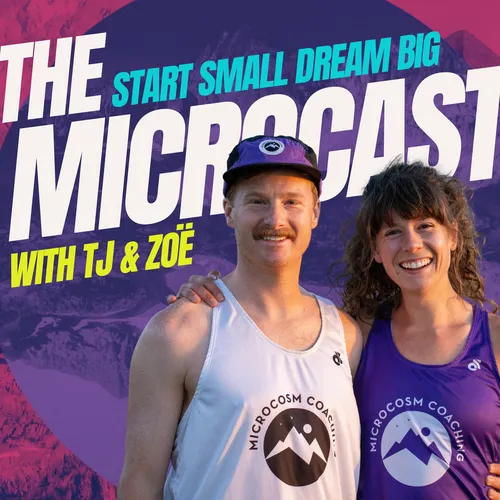The Most Common Questions Coaches Get About Running
- Author
- Microcosm Coaching
- Published
- Mon 05 Aug 2024
- Episode Link
- https://podcasters.spotify.com/pod/show/microcosm-coaching/episodes/The-Most-Common-Questions-Coaches-Get-About-Running-e2mrkhp
In this podcast episode, Coach TJ and Zoe discuss their favorite lessons from the Olympics, common questions from coaches, and a study on the differences between elite and non-elite trail runners. They highlight the importance of mental toughness and addressing mental health concerns in athletes, using examples from Simone Biles and Noah Lyles. They also discuss the mindset of champion athletes like Katie Ledecky, who focus on the process of improvement rather than just the outcome. In the second part of the episode, they answer frequently asked questions about stretching before running, running frequency, choosing running shoes, training volume, and rest days. In this conversation, Zoe discusses the importance of rest days for athletes, the benefits of strength training for runners, the role of cross-training in a training program, the significance of power hiking during runs, and the key factors that differentiate elite runners from amateurs. The main takeaways include the need for rest days to replenish glycogen stores and provide mental rest, the recommendation for all runners to incorporate strength training into their routine, the importance of strategic and individualized strength training programs, the benefits of low-impact cross-training activities, the value of power hiking during uphill sections, and the key factors that contribute to the success of elite runners, including training volume and biomechanical efficiency.
00:00 Introduction and Lessons from the Olympics
06:47 The Champion's Mindset: Focusing on the Process of Improvement
12:06 Should runners stretch before they run? What kind of warm up should runners do?
16:36 What are the best running shoes?
19:47 How many miles should you run?
22:53 How often should runners take a rest day? What should you do on your rest day from running?
30:05 Should runners cross-train? Does cross-training help runners?
37:25 Is it okay to walk? Is it okay for runners to walk during runs?
40:30 Key Factors that Differentiate Elite Runners
